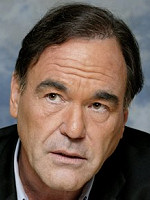Oliver Stone revives anti-Semitic stereotypes
26 Jul 2010 American movie director Oliver Stone has alleged that Jewish control of the media was preventing an open debate about the Holocaust. Stone told the British newspaper ‘The Sunday Times’ that the Jewish lobby had been controlling Washington's foreign policy for years. In the interview, Stone said public opinion in America was focused on the Holocaust as a result of the "Jewish domination of the media," adding that an upcoming film of him aims to put Nazi dictator Hitler and Soviet dictator Stalin "in context."
American movie director Oliver Stone has alleged that Jewish control of the media was preventing an open debate about the Holocaust. Stone told the British newspaper ‘The Sunday Times’ that the Jewish lobby had been controlling Washington's foreign policy for years. In the interview, Stone said public opinion in America was focused on the Holocaust as a result of the "Jewish domination of the media," adding that an upcoming film of him aims to put Nazi dictator Hitler and Soviet dictator Stalin "in context."
“Hitler did far more damage to the Russians than the Jewish people, 25 or 30 million," Stone told the newspaper. “Hitler was a Frankenstein but there was also a Dr Frankenstein. German industrialists, the Americans and the British. He had a lot of support.”
He then alleged Jews were dictating US foreign policy. "There's a major lobby in the United States. They are hard workers. They stay on top of every comment, the most powerful lobby in Washington." He claimed Israel had “fucked up United States foreign policy for years," adding that US policy toward Iran was "horrible", although “Iran isn’t necessarily the good guy.”
Stone also asked his interviewer if she could look into the newspaper's archives to find information about the “Israelis and the bomb”.
Earlier this year, speaking at a press tour of the Television Critics Association, Stone had said that "Hitler is an easy scapegoat throughout history and it has been used cheaply. He is the product of a series of actions."
The famous Hollywood director has a Jewish father.
Reacting to the controversy caused by his remarks in the 'Sunday Times', Stone on Monday had a statement issued by his public relations agency Rubenstein Communications, in which he declared: "In trying to make a broader historical point about the range of atrocities the Germans committed against many people, I made a clumsy association about the Holocaust, for which I am sorry and I regret. Jews obviously do not control media or any other industry. The fact that the Holocaust is still a very important, vivid and current matter today is, in fact, a great credit to the very hard work of a broad coalition of people committed to the remembrance of this atrocity - and it was an atrocity."